Government decision-makers and industry thought-leaders convened to discuss the role of spectrum policy in delivering global digital ambitions at the GSMA Ministerial Programme during MWC Barcelona 2024.
Experts from around the world highlighted the spectrum agenda for the years ahead. They discussed how spectrum policies can accelerate the adoption of the latest mobile technologies, enhance productivity in all sectors that leverage the mobile ecosystem, and support a vibrant digital economy. In the busy spectrum agenda during Ministerial Programme, ministers, regulators and industry considered best practices to ensure that new spectrum methodologies support long-term growth.
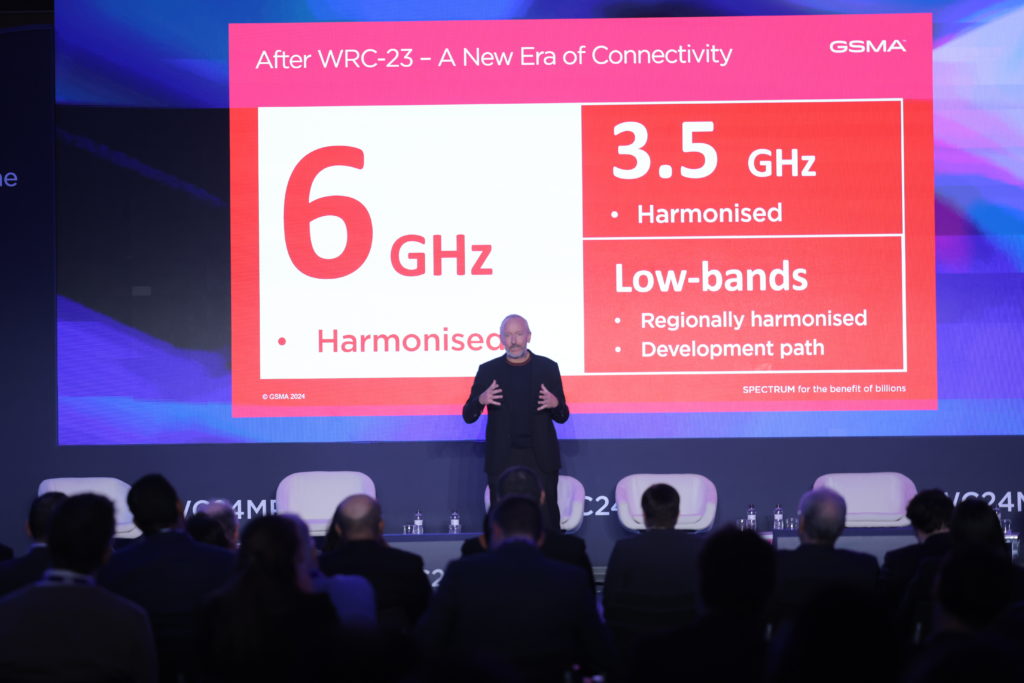
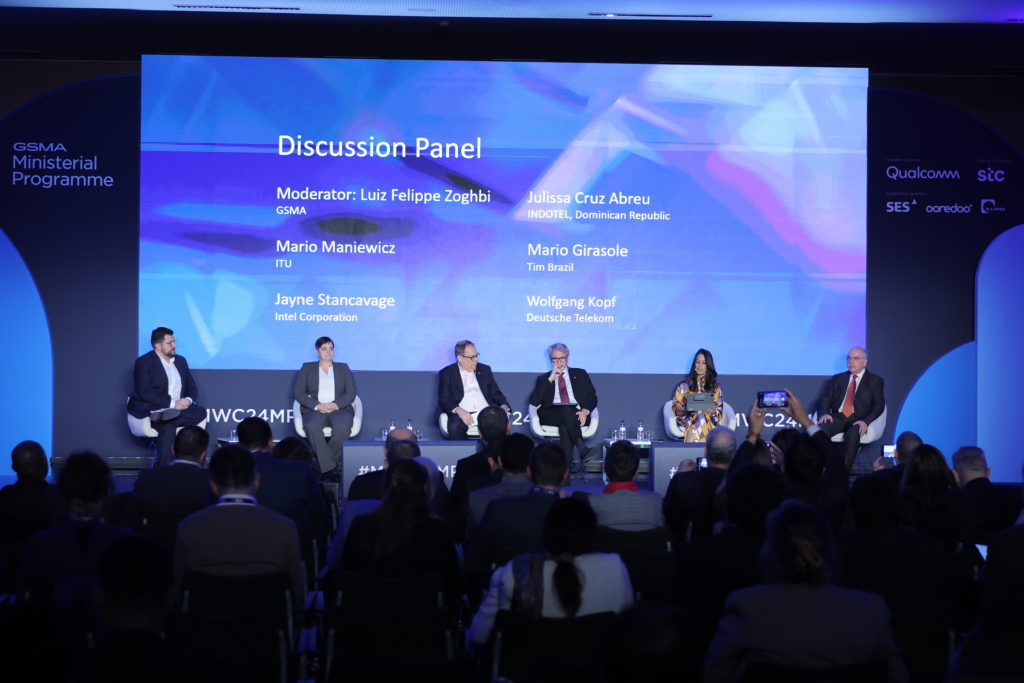
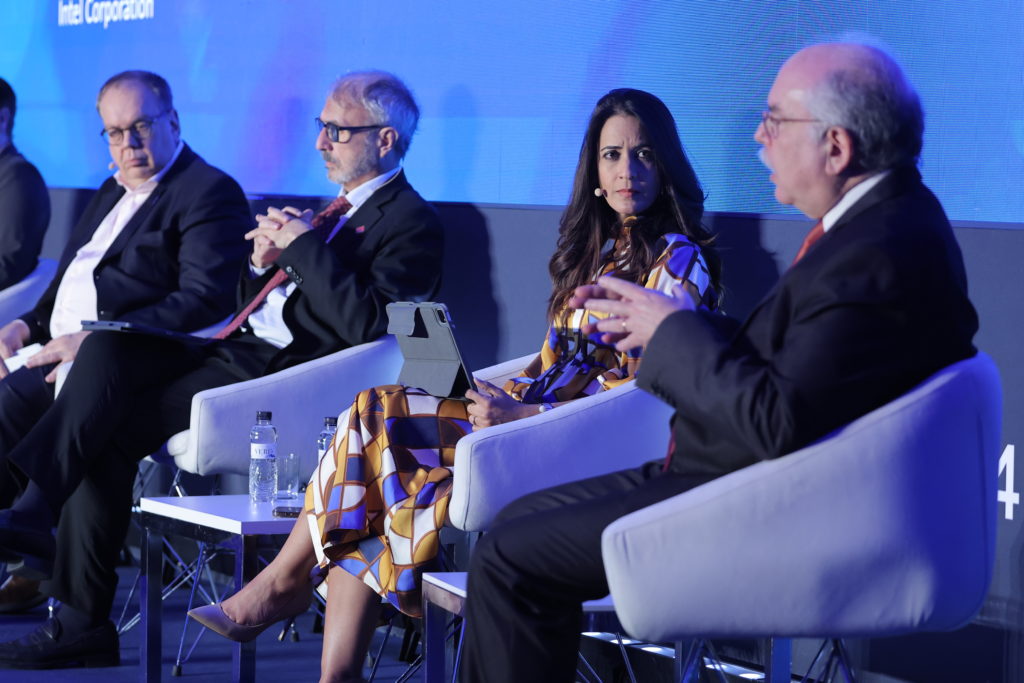
With the conclusion of the ITU World Radiocommunication Conference (WRC-23) last year, the spectrum fora in Barcelona debated how to ensure that the WRC is used as the starting point for a new era of connectivity. Agreements were made at WRC-23 on new mobile low-band spectrum (below 1 GHz) and mid-band spectrum in the 3.5 GHz and 6 GHz ranges, and Ministerial Programme discussion on spectrum centred on how to use this opportunity to drive digital equality and growth through policy vision.
Spectrum for growth and community

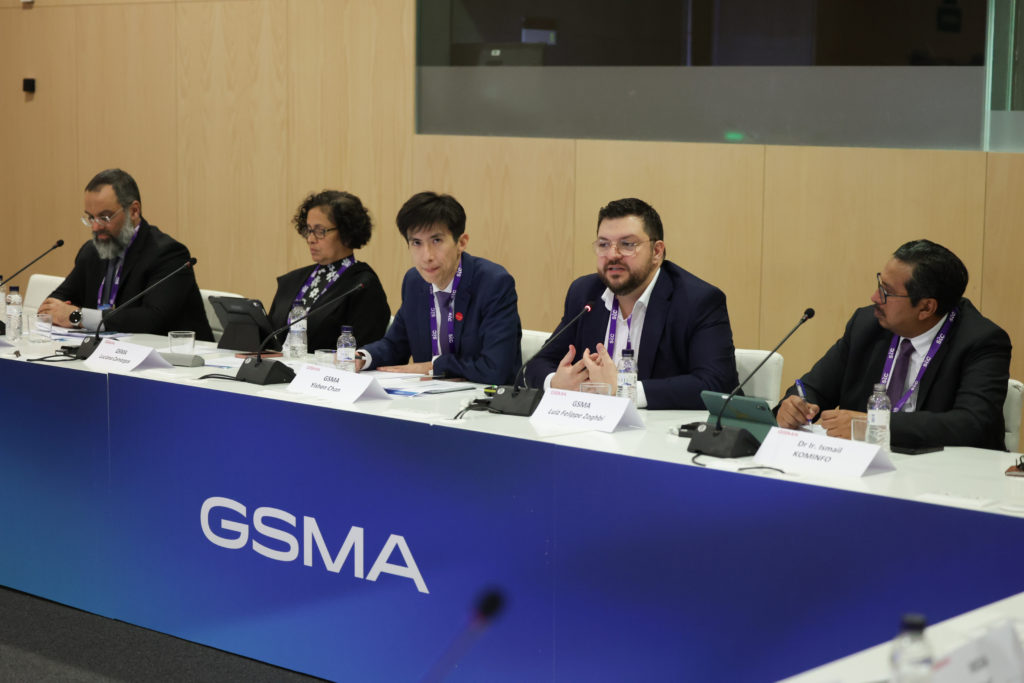
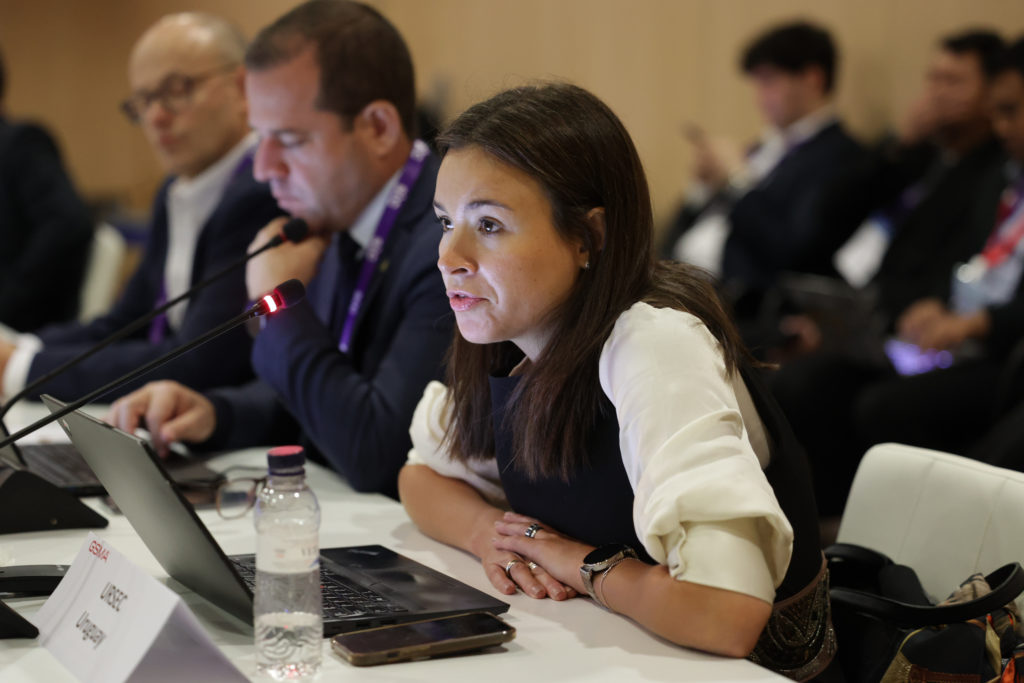
Creating an investment-friendly environment is a priority for countries as they plan spectrum, a process which starts with a clear spectrum roadmap. This gives mobile operators the certainty they need to invest in their networks backed by transparent renewal plans and clarity into future spectrum allocations.
Roadmaps and digital aspirations must be backed by spectrum pricing methodologies that foster innovation and consumer value. High spectrum prices have a negative impact on the speed of network deployments, as well as the quality of services, and conversation during MWC Barcelona focussed on new methodologies that take a longer-term view of digital development. Governments and regulators discussed current trends that avoid artificial spectrum scarcity and high reserve prices, while ensuring award processes encourage sustainable network investment.
The discussion during MWC Barcelona reflected recent licensing trends. Efforts to assign spectrum in exchange for connectivity, coverage and infrastructure expansion and other investment-friendly initiatives are becoming more common. Brazil auctioned spectrum in 2021 in a process where 91% of the fees were fully turned into network investments, allowing operators to go beyond licence commitments and fulfil 200% of coverage obligations. In France, the 2018 ‘New Deal’ on spectrum licensing doubled 4G coverage within five years.
Spectrum for industries
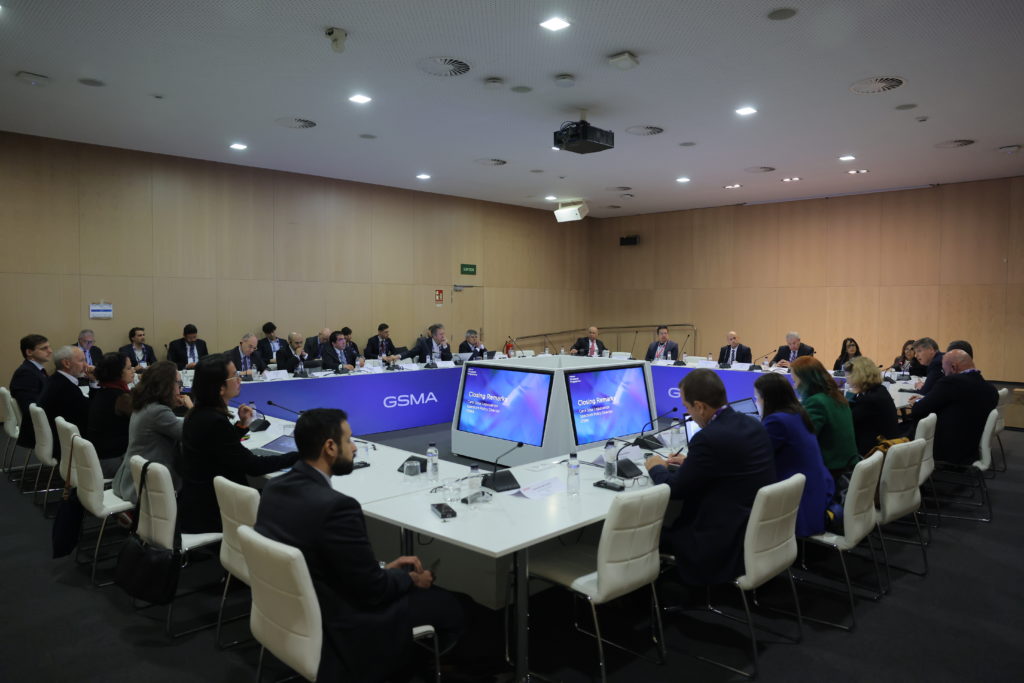

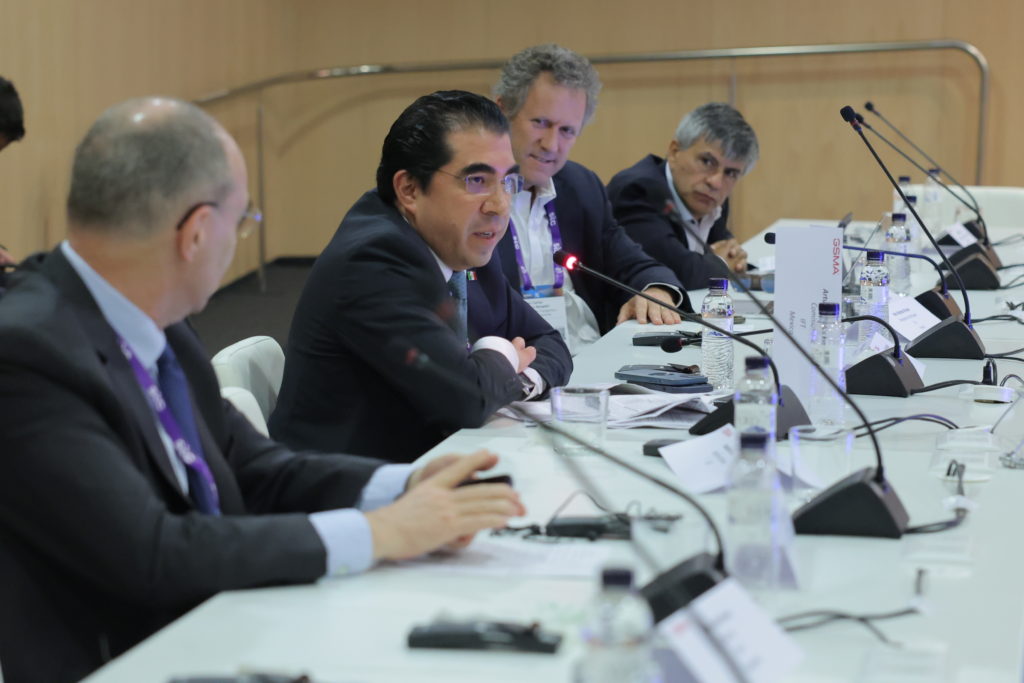
Private networks that offer bespoke connectivity for industrial applications are gaining momentum all over the world and enabling this use case represents an important challenge for policy makers.
MWC Barcelona discussed the best policies to promote industrial connectivity without harming other spectrum users. Supposed correlations between spectrum carve-outs and private network growth are being debunked and collaborative approaches using licensing mechanisms are becoming more common. Private networks do not equal private spectrum and the GSMA announced that it will be publishing new disruptive analysis during 2024 that will shed new light on best spectrum practice to deliver industrial connectivity.
Spectrum for the planet
UN SDGs and carbon-neutral development are always important topics at the Ministerial Programme and investment-friendly spectrum policies that can also help combat climate change were raised throughout MWC Barcelona. Spectrum policies can help reduce carbon emissions from the mobile ecosystem itself, while advancing mobile connectivity will have an enabling effect on emission-saving in other sectors. A 100 MHz increase in mobile spectrum can reduce carbon emissions by 15MtCo2e in a high-income country, equivalent to eliminating the carbon footprint of 50 million passengers flying from London to New York.
Spectrum Leadership Award
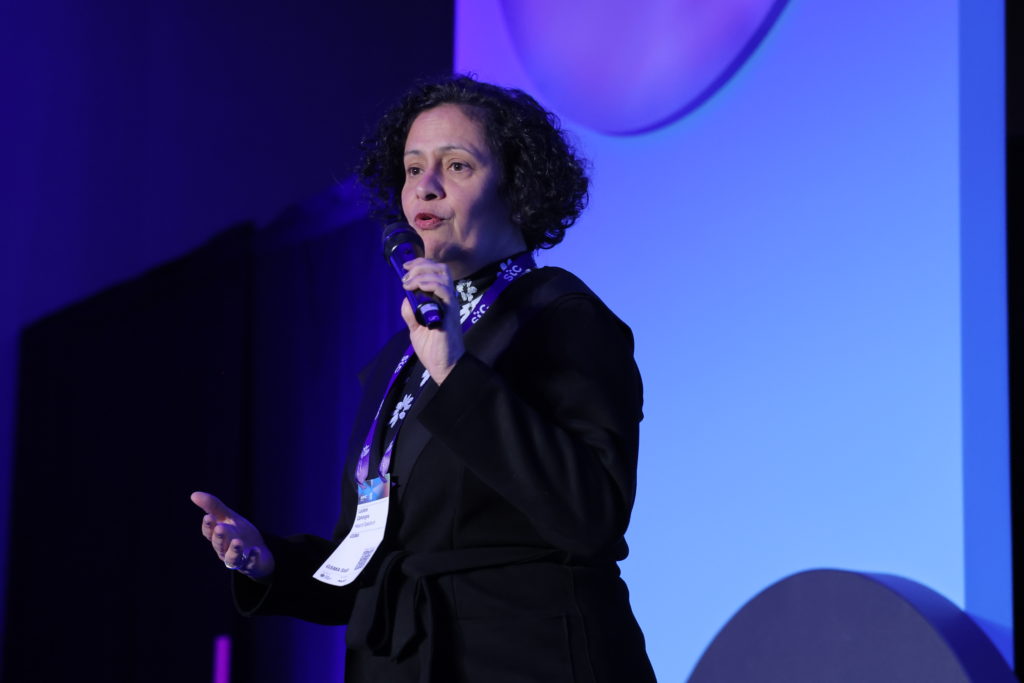
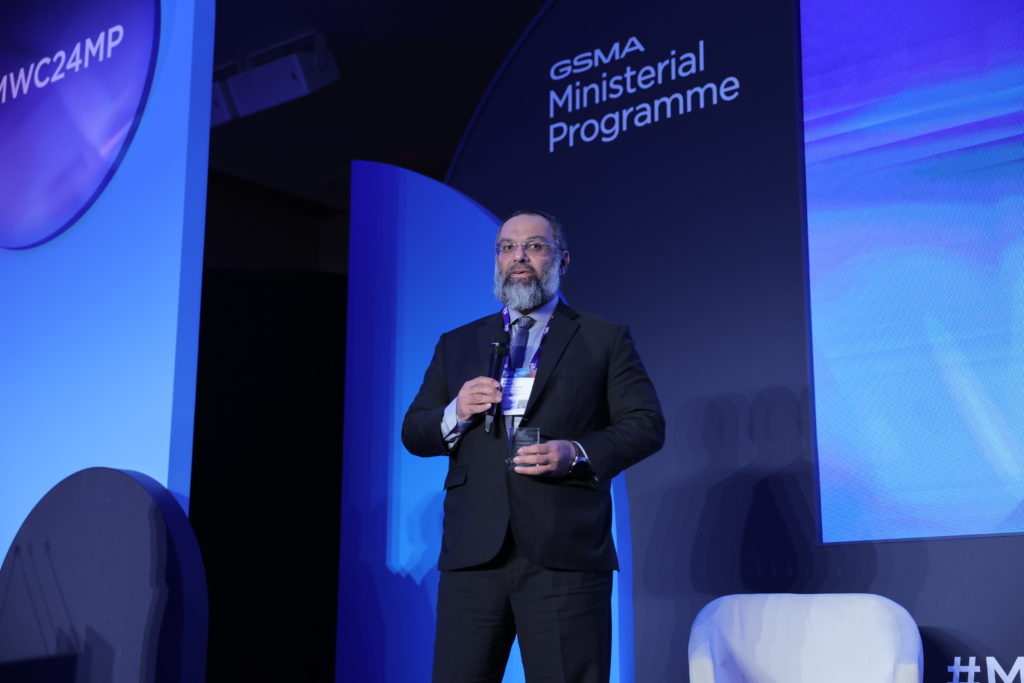
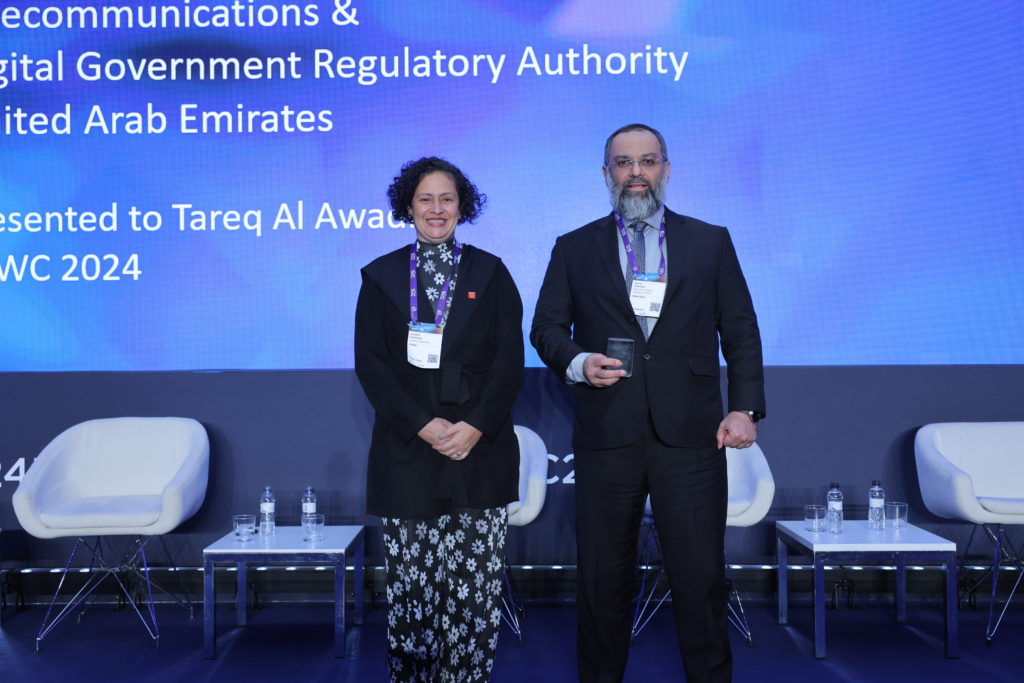
At Ministerial Programme, the GSMA was also honoured to present its Spectrum Leadership Award to Tareq Al Awadhi on behalf of the Telecommunications and Digital Government Regulatory Authority (TDRA) of the UAE.
The UAE has led the world in spectrum harmonisation and it chaired the World Radiocommunication Conference for the second time last year. It ranks first in the world when it comes to infrastructure in the GSMA Intelligence 5G Connectivity Index, driven by exceptional consumer experience and the fastest download speeds in the world. The work of the spectrum team at TDRA has helped support a vibrant digital economy in the UAE.
In summary, the “Spectrum: Shaping the Future” session and the “Spectrum Towards 2030: Capacity and Affordability” and “Private Networks Fashion: Spectrum for Industries” roundtables emphasised the pivotal role of spectrum management in driving innovation and economic growth. Collaboration among stakeholders is crucial to ensure efficient spectrum assignments and affordability. By embracing technological advancements and forward-thinking regulations, we can unlock the full potential of a connected and prosperous digital future.
Download resources:
Mainstage Session Slides | Spectrum 2024: Roadmap for Connectivity
Roundtable Slides | Spectrum Towards 2030: Capacity and Affordability
Roundtable Slides | Private Networks Fashion: Spectrum for Industries

